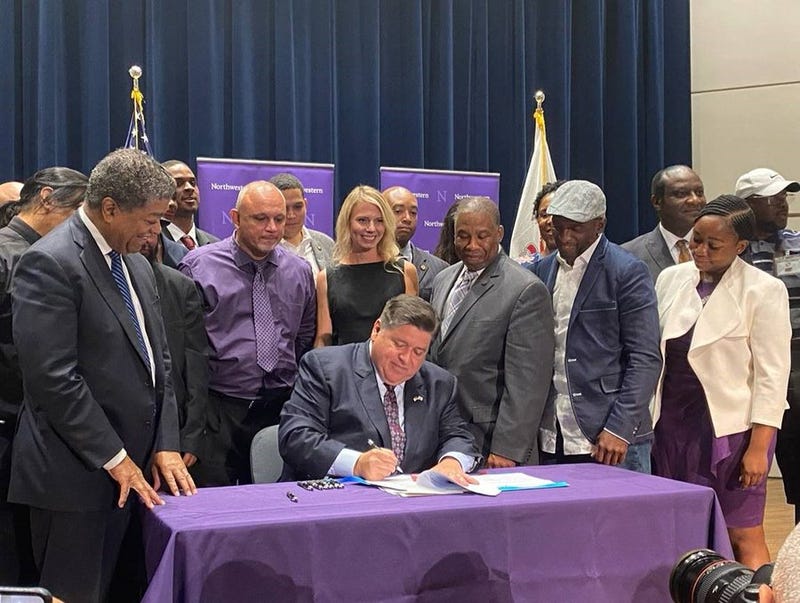
SPRINGFIELD, Ill. (WBBM NEWSRADIO) -- Law enforcement will no longer be able to use deceptive tactics when interrogating a minor under a measure Governor Pritzker signed into law Thursday; making Illinois the first state in the nation to take such actions.
Advocates, along with national law enforcement organizations and training agencies, have argued that deceptive interrogation techniques, like lying, increase the likelihood of a minor making a false confession, which ultimately could lead to wrongful convictions.
While the use of deceptive tactics was deemed permissible by the judiciary in 1969, on Thursday, members of both the 7th Circuit Federal Court of Appeals and Illinois Court of Appeals have condemned the use of deceptive practices when interrogating minors because of the risk it poses in producing false confessions, according to the Cook County State’s Attorney’s Office.
“Here in Illinois, whether it’s paving the way for compassionate resentencing by recognizing the human potential for change or protecting our children by banning deceptive practices in police interrogations of minors, we are making it abundantly clear that justice can no longer be denied,” said Lt. Governor Juliana Stratton. “By bringing a restorative justice lens to policy making, we are transforming our justice system and serving as a model for the nation.”
The law, sponsored by Senator Robert Peters and U.S. Representative Justin Slaughter, takes effect Jan. 1.
According to the Tribune, the new law bans all law enforcement from "knowingly providing false information" about evidence or making unauthorized statements about leniency while questioning those 17 and younger. Any confession made under those circumstances will be inadmissible in court, unless prosecutors can prove “by a preponderance of the evidence that the confession was voluntarily given.”
“My deep hope is that Illinois is setting an example for the entire nation to pass this law in all 50 states,” Pritzker said.
Senate Bill 2122 was one of four pieces of legislation Governor Pritzker signed Thursday that puts Illinois at the forefront of the work to bring about true reform to the state’s justice system.
“An essential tenet of good governance is recognizing the need to change the laws that have failed the people they serve. My administration has infused that value into everything we do,” said Governor JB Pritzker, in a statement. “The four bills I’m signing today advance the rights of some of our most vulnerable in our justice system and put Illinois at the forefront of the work to bring about true reform. Together, these initiatives move us closer to a holistic criminal justice system, one that builds confidence and trust in a system that has done harm to too many people for far too long.”
The other three bills signed included:
• Senate Bill 64, which encourages the use of restorative justice practices by providing that participation in such practices and anything said or done during the practice is privileged and may not be used in any future proceeding unless the privilege is waived by the informed consent of the party or parties covered by the privilege. Sponsored by Senator Peters and Representative Ammons, the bill takes effect immediately.
• Senate Bill 2129, which allows the State’s Attorney of a county in which a defendant was sentenced to petition for resentencing of the offender if the original sentence no longer advances the interests of justice. Sponsored by Senator Peters and Representative Cassidy, the bill takes effect January 1, 2022.
• House Bill 3587, which creates the Resentencing Task Force Act to study ways to reduce Illinois’ prison population via resentencing motions. Sponsored by Senator Peters and Representative Slaughter, the bill takes effect immediately.

